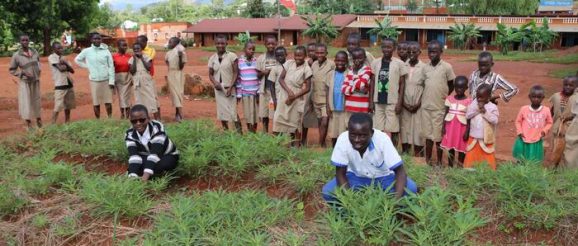CREATABLE project: innovation, creativity & entrepreneurship are ongoing with adolescents in Burundi

The Government of Burundi and UNICEF conducted a joint mission to Nyamabuye Basic School, to appreciate the progress of the “CREATABLE project
The CREATABLE project aims to encourage innovation, creativity and entrepreneurship among adolescents in schools. This initiative funded by UNICEF Australia started in 2020 and is being implemented in 10 provinces of Burundi, one school per province, with support of the Ministry of National Education and Scientific Research (MENRS), through a technical operational team (ETO).
At this school, the CREATABLE project aims, on the one hand, to make the Grade 8 Science and Technology course more practical than theoretical; and on the other hand, to contribute to solving real problems faced by the community, through the empowerment of students as agents of social change.
The project is based on three modules: creativity, construction of improved cookstove and construction of solar stills.
Under this project, 25 improved cookstoves were built by students to improve traditional cooking methods in their homes. Building improved cookstoves in the community was highly appreciated by the beneficiaries as testified by Eliphase VYIZIGIRO: “with the innovation and entrepreneurship skills that I acquired through the CREATABLE project, we have produced these improved cookstoves for the households in our community, which not only protect the environment, but also allow us to have income”.
The construction of solar stills is another module valued by the beneficiaries, as they can build more of them and sell them to their community members. “This allows us to save money for other projects, while contributing at the same time to the protection of the environment “, says Emelyne NIYOKWIZER, 13, explaining how the solar still works.
Students also proudly showed their legume garden, which they grow thanks to the skills learned through the CREATABLE project. They reported that money they earn from selling these legumes allows them to invest in other community projects.
The joint mission experts also noted during a feedback meeting at the end of the visit, the positive impact of this project on the lives of the community members.
